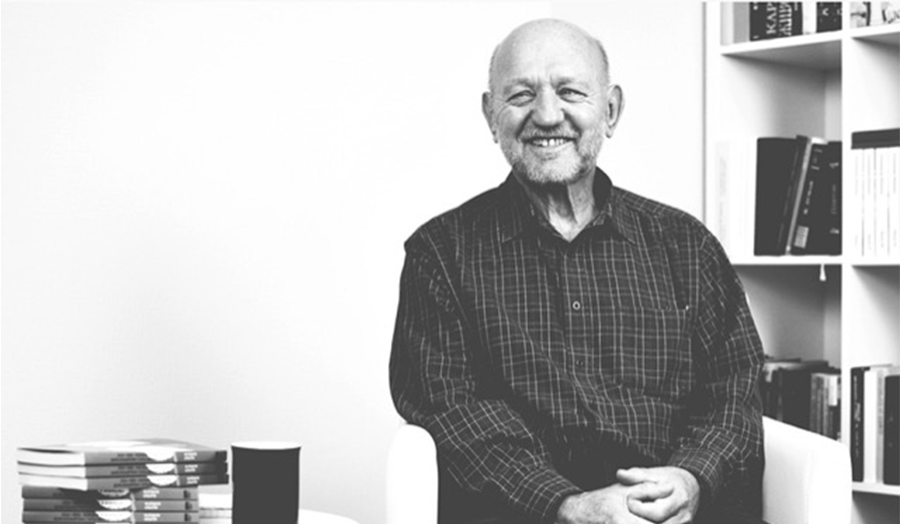Michael Newman, Emeritus Professor at London Met, pays tribute to Dr Marko Bojcun.
Date: 26 April 2023
Dr Marko Bojcun (1951-2023) died on 11 March 2023 after a long struggle against cancer. Marko was a Senior Lecturer, originally at the former University of North London (UNL) and then London Met, from 1993 until 2013, in European Studies, International Relations, and Peace and Conflict Studies. An inspiring and dedicated teacher and researcher, but also a committed political activist, who always wanted to help to build a better world based on justice, democracy and both social and national equality. All this was rooted in his personal history in the Ukrainian diaspora, and it is particularly tragic that he died in the midst of the horrors of the current war. Yet it is typical of Marko’s courage that, while often in great pain, he was actively campaigning against the Russian aggression until the very end.
Born near Newcastle in Australia, the family emigrated to Canada in 1968 to join the much larger Ukrainian community in Toronto. As a student in the late 1960s he rapidly moved to the left, whilst many in his parents’ generation were nationalist and right-wing. In the 1970s and 1980s he was actively involved in the Canadian anti-Soviet left, and, for some years, he held a Trotskyist position. However, his lifelong interest and commitment was in reconciling socialism and national self-determination, particularly in the multinational context of Ukraine, and by 1982 his position had already shifted. Inspired by some earlier Ukrainian theorists and activists, whose work had been suppressed or ignored, he sought the renewal of a buried Marxist tradition.
The Chernobyl nuclear disaster in April 1986 was a key moment for him, and he was shocked by the initial attempts of the Soviet state under Gorbachev, its new leader, to cover up what had happened. He recorded this in a book (Victor Haynes, Marko Bojcun, The Chernobyl Disaster: The True Story of a Catastrophe – An Unanswerable Indictment of Nuclear Power (London: Chatto & Windus, 1988), and he visited the site and, with Anatoliyi Artemenko, made an award-winning documentary film (Children of Chernobyl, still available on YouTube). The collapse of the Soviet Union in 1991 was even more significant, for he feared that a formally independent Ukraine would be squeezed between the more powerful forces of Russia and the West. From the start he was thus convinced that substantive independence must involve a European future.
Significantly, his first involvement with UNL – even before formally joining the institution a few months later – was as a speaker at a major conference, ‘Ukraine in the New Europe’, which we hosted as the inaugural event for our new research centre. Subsequently, he devoted a vast amount of his time and energy to seeking to advance this aim within UNL/London Met, including by establishing a Ukraine Centre, developing training programmes, building links with Ukrainian institutions, and through student placements on the degree programmes.
Yet he was also deeply critical, both of political and economic developments in Ukraine and of Western and EU policies towards it. He was often dismayed by the exclusion of the working classes from political power in the new state as well as its poverty and growing inequality. At the same time he condemned the ways in which major capitalist powers and interests sought to control and dominate Ukraine rather than facilitate its development. He analysed all this in numerous articles, many of which were published in book form in Towards a Political Economy of Ukraine: Selected Essays 1990-2015 (Stuttgart: Ibidem-Verlag, 2020). But his academic work was always combined with his activism and from 2014 onwards, he played a key role in seeking to generate support from the left in Britain for opposition to Putin’s war of aggression. Through the Ukraine Solidarity Campaign he constantly spoke, organised and blogged even as his death approached.
For Marko, the past and the present, as well as analysis and politics were inextricably linked. When already ill, he thus re-wrote his doctoral thesis (originally awarded in 1985), incorporating an immense amount of subsequent publications, in a seminal book, The Workers Movement and the National Question in Ukraine 1897-1918 (Brill: Leiden and Boston, 2021). It was recognised as being of historical and theoretical importance in an understanding of Ukraine but is also indispensable reading for anyone interested in nationalism, socialism and democracy. This is an erudite and scholarly work, but he could also write totally engagingly in a far more personal way, as for example, in his superb essays, East of the Wall (Amazon: 2015).
Above all, Marko was a warm, positive, generous and caring person, who will be greatly missed by his colleagues and students, as well his numerous friends throughout the world, including in the Ukrainian Institute in London. He leaves a partner, Jane Greenwood, and two sons, Maksym and Jacob.

